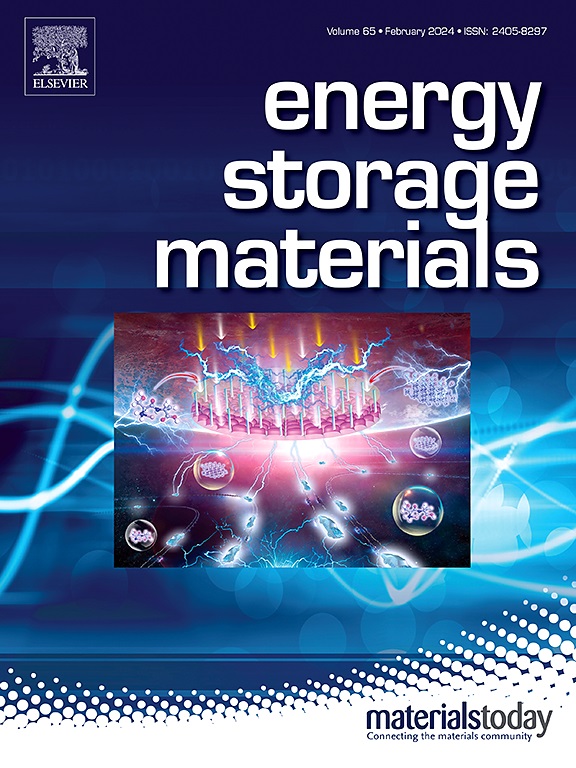Machine Learning Accelerates High-Voltage Electrolyte Discovery for Lithium Metal Batteries
IF 18.9
1区 材料科学
Q1 CHEMISTRY, PHYSICAL
引用次数: 0
Abstract
Appropriate electrolytes are essential for ensuring the performance stability of high-voltage lithium metal batteries. However, the complexity arising from multiple solvents and their relative ratios leads to significant challenges for the design of electrolytes. Herein, we propose a machine learning (ML) approach that links the microscopic properties of electrolytes with their macroscopic battery performance, thus enabling the discovery of high-performance electrolyte formulations to be accelerated. By designing chemical groups of electrolyte solvents as features and establishing a cycling stability evaluation metric for batteries, an ML model is created to predict the capacity retention of high-voltage lithium metal batteries. Through integrating this ML model with a heuristic optimization algorithm, a series of superior electrolytes are identified within a ternary solvent design space (over 29,000 possible electrolytes). Our model reveals that a specific proportion of the fluorinated ether diluent is critical for achieving superior capacity retention in fluorinated electrolytes. To validate the cycling stability of these electrolytes, we experimentally tested them in a Li||LiNi0.5Mn1.5O4 coin cell configuration. All the cells containing the discovered electrolytes demonstrate outstanding capacity retention, consistent with our model’s prediction trend. This work highlights the potential of ML approaches for the design and optimization of stable, high-performance battery electrolytes.

机器学习加速锂金属电池高压电解液的发现
合适的电解液是保证高压锂金属电池性能稳定的关键。然而,由多种溶剂及其相对比例引起的复杂性给电解质的设计带来了重大挑战。在此,我们提出了一种机器学习(ML)方法,将电解质的微观特性与其宏观电池性能联系起来,从而加速高性能电解质配方的发现。以电解液溶剂的化学基团为特征,建立电池循环稳定性评价指标,建立预测高压锂金属电池容量保持的ML模型。通过将该ML模型与启发式优化算法集成,在三元溶剂设计空间(超过29,000种可能的电解质)中确定了一系列优质电解质。我们的模型表明,特定比例的氟化醚稀释剂对于在氟化电解质中实现优越的容量保留至关重要。为了验证这些电解质的循环稳定性,我们在Li||LiNi0.5Mn1.5O4硬币电池配置中进行了实验测试。所有含有发现电解质的电池都表现出出色的容量保留,与我们模型的预测趋势一致。这项工作突出了机器学习方法在设计和优化稳定、高性能电池电解质方面的潜力。
本文章由计算机程序翻译,如有差异,请以英文原文为准。
求助全文
约1分钟内获得全文
求助全文
来源期刊

Energy Storage Materials
Materials Science-General Materials Science
CiteScore
33.00
自引率
5.90%
发文量
652
审稿时长
27 days
期刊介绍:
Energy Storage Materials is a global interdisciplinary journal dedicated to sharing scientific and technological advancements in materials and devices for advanced energy storage and related energy conversion, such as in metal-O2 batteries. The journal features comprehensive research articles, including full papers and short communications, as well as authoritative feature articles and reviews by leading experts in the field.
Energy Storage Materials covers a wide range of topics, including the synthesis, fabrication, structure, properties, performance, and technological applications of energy storage materials. Additionally, the journal explores strategies, policies, and developments in the field of energy storage materials and devices for sustainable energy.
Published papers are selected based on their scientific and technological significance, their ability to provide valuable new knowledge, and their relevance to the international research community.
 求助内容:
求助内容: 应助结果提醒方式:
应助结果提醒方式:


